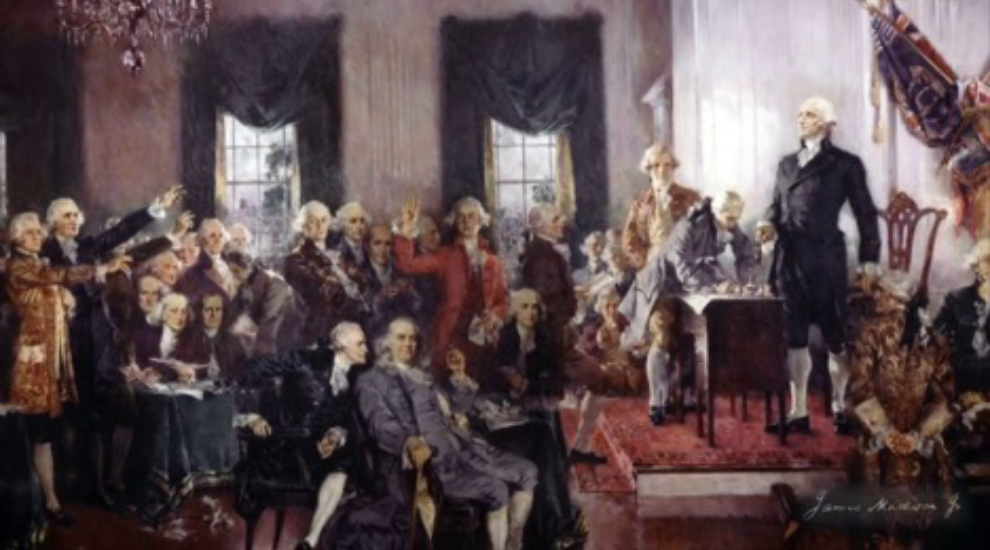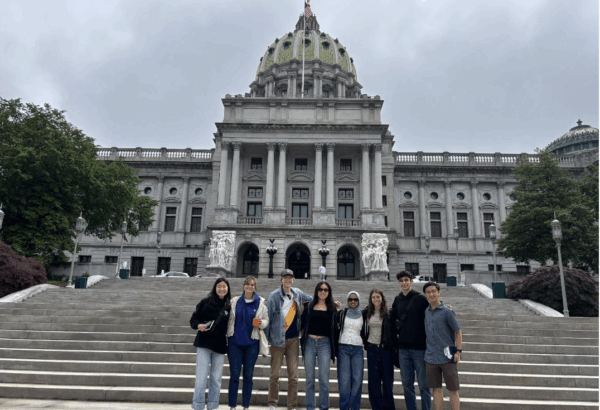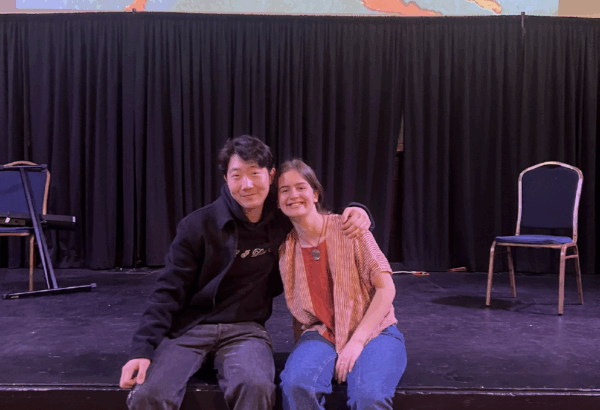As a brief, contextualizing summary, Derek Thompson’s article begins with a summation of different phrases Democrats and Republicans used in the 2016 U.S. Presidential Election to convey the divisive and polarizing narratives inherent in both parties. While Democrats used words such as “comprehensive health reform,” “undocumented immigrants” and “tax breaks for the wealthy,” Republicans used “Washington takeover of health care,” “illegal aliens” and “tax reform.”
Thompson’s point still stands today. Think about the recent Covid-19 crisis. The way each state and city handled the pandemic was largely dependent upon the communication leading officials used. Phrases such as “stay home and stop the spread” versus “mandatory quarantine” have significantly different connotations. “Quarantine” highlights the medical severity of a pandemic and “mandatory” makes it all the more urgent and perhaps even turned a pandemic into an argument over individual liberties. However, “staying home and stop the spread” draws on a moral and societal obligation to help one’s community and those immediately around him or her. Those are just two instances of public health communication among a myriad of possible examples. Though it does go to show that public health regulations turned into a political debate. And don’t even get me started on why masks—a small piece of fabric, with large implications, that single handedly could have stopped a pandemic in its tracks—became a political fight and cry over so-called personal freedoms.
Thompson begs the question: when. When exactly did party language become so divisive and distinct? He points to a research paper by two economists who claim 1990 was the point of political inflection. Specifically, through more quantitative research, the authors say it occurred in 1994 when Newt Gingrich led the Republican takeover of Congress and introduced the Contract with America. His so-called “revolution” popularized words like “tax relief” as opposed to “tax cut” or “tax giveaway.” Since then, political narratives have spiraled in opposing directions building off of his 1994 foundation. In a somewhat contradictory manner, the article also claims that differing political language has been evident since the Civil War when Northerners referred to it as “The Great Rebellion” whereas Southerners called it “The War of Northern Aggression.”
Though I can see where Newt Gingrich acts as a major turning point in this issue, I would also argue that our differing lexicons date back even before the Civil War– and arguably before nationhood with the American Revolution. Just think about the connotations of “loyalists” and “patriots.” The term “patriot” signifies a country already existing with hints of heroism while “loyalists” might be synonymous with lacking opinion or courage as loyalists’ sole reason for fighting on behalf of the British was merely that they were loyal. Now that is just one interpretation, but it proves that differing political vocabulary has always existed and demonstrates that one’s favor toward certain words are a result of which side he or she finds him or herself. Think about it: my interpretation of revolutionary vocabulary is from the point of view of an American citizen almost 250 years later. Of course I think a “patriot” is heroic because that revolutionary war established the country that I live in today.
Thompson goes on to say that different vocabularies often don’t matter but that politics is the exception. Specifically, he used the example of “pop” and “coke” and how both are actually incorrect when the term is “soda.” He said that this example demonstrates the geographic irrelevance of word choice highlighted by something as meaningless as a beverage. However, I disagree with this. To an extent, I see where he is coming from in that the difference between two words identifying a beverage shouldn’t matter. It’s just a “coke” right? See what I did there? But what he fails to take into account, though, is the stereotypes and assumptions word choice carries. As a reader, what did you just assume about me because I chose the word coke? Did you roll your eyes at a corny joke? Did you think I was Southern? Did you think I was wrong or right?
Sometimes, people think Southerners lack intellect with their alleged incorrect English, but really it is a complex system of language where in order to understand it, one has to understand the culture and history—the good, bad, and ugly—behind it. If the “coke” example did not convince you, then here’s my more personal example. If I said “yes ma’am” or “yes sir” to you, would you be annoyed, flattered, or indifferent? Though I was raised to say “ma’am” or “sir” on every occasion, it might sound silly to you. Your interpretation of my words says as much about you as it does about my usage.
So, politics is not the exception, but this word play conveys an important lesson. The words politicians and party leaders and even day-to-day Americans use in reference to ballot issues matters. With those words come connotations, assumptions, and stereotypes. This is something known as heuristics or mental shortcuts that enhance the cognitive accessibility of stereotypes. It’s true with everything from “pop” to “tax reform.”
A final point of Thompson’s that I wanted to address is in reference to his statement: “…devoting all this energy to building separate lexicons creates the impression that words are as important as policies. They are most certainly not.” Maybe it’s because I hope to be a communication scholar or maybe it’s my love of writing and words and all the value that they can bring, but I could not disagree more. I believe myself to have an understanding of political policies and the change that they can bring (though it can always be further developed), but words are as important as those policies, if not more! How does Thompson expect these policies to be executed, implemented and followed if not done so with appropriate word choice? The way in which policies and legislation is written matters. A lot.
That is why I am so passionate about my Civic Project. While tons and tons of organizations are devoted to establishing common ground and encouraging compromise, at some point, diction-based bipartisanship must be inherent in our government in order to work. By that I mean injecting our legislation with unificatory words—words that appreciate the diversity of America and all the rich lexicons it has to offer with all of the cultural significance vocabulary has to offer. I could go on and on about how to do so, but in this article, I wanted to address the importance of word choice and policies. At the end of the day, without words, what policies do we have? One final example goes back to the beginning of this article—the CARES Act of Covid-19. Though it is an acronym, Coronavirus Aid, Relief, and Economic Security Act, the fact that it is referred to as CARES makes the government seem perhaps more supportive than something simple like Pandemic Economic Stimulus Act.
The time is now more than ever to appreciate and recognize the value of word choice. Americans have spent a year at home in their respective neighborhoods and communities without travel due to the pandemic. The dispersion and dissemination of certain vocabulary has certainly decreased with such a standstill of transportation. We cannot get set in our own vocabularies. We must be exposed to both the Republican and Democratic lexicons in order to find a middle ground: those are the unificatory words.




